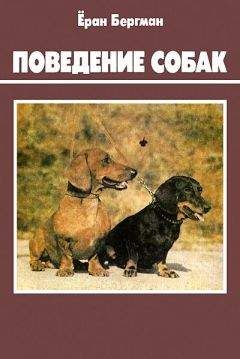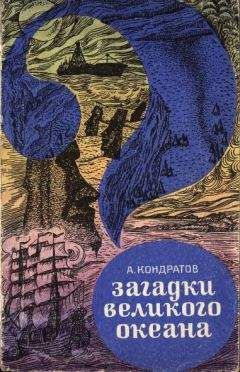Как живые: Двуногие змеи, акулы-зомби и другие исчезнувшие животные - Журавлёв Андрей Юрьевич
Ehret D. J. et al. Origin of the white shark Carcharodon (Lamniformes: Lamnidae) based on recalibration of the upper Neogene Pisco Formation of Peru. Palaeontology, 2012, 55, 1139–53.
Engelman R. K. A Devonian fish tale: A new method of body length estimation suggests much smaller sizes for Dunkleosteus terrelli (Placodermi: Arthrodira). Diversity, 2023, 15, 318.
Ferrón H. G. Regional endothermy as a trigger for gigantism for some extinct predatory sharks. PLoS ONE, 2017, 12 (9), e0185185.
Ferrón H. G., Holgado B., Liston J. J., Martínez-Pérez C., Botella H. Assessing metabolic constraints on the maximum body size of actinopterygians: Locomotion energetics of Leedsichthys problematicus (Actinopterygii, Pachycormiformes). Palaeontology, 2018, 61, 775–83.
Freitas R., Gómez-Skarmeta J. L., Rodrigues P. N. New frontiers in the evolution of fin development. Journal of Experimental Zoology B (Molecular and Developmental Evolution), 2014, 9999B, 1–13.
Frey E., Tischlinger H. The Late Jurassic pterosaur Rhamphorhynchus, a frequent victim of the ganoid fish Aspidorhynchus? PLoS ONE, 2012, 7 (3), e31495.
Friedman M. et al. 100-million-year dynasty of giant planktivorous bony fishes in the Mesozoic seas. Science, 2010, 327, 990–3.
Gabbott S. E. et al. Pigmented anatomy in Carboniferous cyclostome and the evolution of the vertebrate eye. Proceedings of the Royal Society of London B, 2016, 283, 20161151.
Gai Z., Donoghue P. C. J., Zhu M., Janvier P., Stampanoni M. Fossil jawless fish from China foreshadows early jawed vertebrate anatomy. Nature, 2011, 476, 324–7.
Gai Z., Zhu M., Donoghue P. C. J. The circulatory system of Galeaspida (Vertebrata; stem-Gnathostomata) revealed by synchrotron X-ray tomographic microscopy. Palaeoworld, 2019, 28, 441–60.
Gai Z. et al. Galeaspid anatomy and the origin of vertebrate paired appendages. Nature, 2022, 609, 959–63.
Gai Z., Zhu M., Ahlberg P. E., Donoghue P. C. J. The evolution of the spiracular region from jawless fishes to tetrapods. Frontiers in Ecology and Evolution, 2022, 10, 887172.
Gess R. W., Coates M. I., Rubidge B. S. A lamprey from the Devonian period of South Africa. Nature, 2006, 443, 981–4.
Giles S., Rücklin M., Donoghue P. C. J. Histology of "placoderm" dermal skeletons: Implications for the nature of the ancestral gnathostome. Journal of Morphology, 2013, 274, 627–44.
Godfrey S. J., Ellwood M., Groff S., Verdin M. S. Carcharocles-bitten odontocete caudal vertebrae from the Coastal Eastern United States. Acta Palaeontologica Polonica, 2018, 63, 463–8.
Godfrey S. J., Nance J. R., Riker N. L. Otodus-bitten sperm whale tooth from the Neogene of the Coastal Eastern United States. Acta Palaeontologica Polonica, 2021, 66, 599–603.
Goudemand N., Orchard M. J., Urdy S., Bucher H., Tafforeau P. Synchrotron-aided reconstruction of conodont feeding apparatus and implications for the mouth of the first vertebrates. Proceedings of the National Academy of Sciences of the USA, 2011, 108, 8720–4.
Griffiths M. L. et al. Endothermic physiology of extinct megatooth sharks. Proceedings of the National Academy of Sciences of the USA, 2023, 120, 27, e2218153120.
Haridy Y. et al. Bone metabolism and evolutionary origin of osteocytes: Novel application of FIB-SEM tomography. Science Advances, 2021, 7, eabb9113.
Hawkins M. B. et al. An Fgf-Shh positive feedback loop drives growth in developing unpaired fins. Proceedings of the National Academy of Sciences of the USA, 2022, 119 (10), e2120150119.
Hou X.-G., Ramsköld L., Bergström J. Composition and preservation of the Chengjiang fauna – a Lower Cambrian soft-bodied biota. Zoologica Scripta, 1991, 20, P. 395–411.
Jaschke N., Sipos W., Hofbauer L. C., Rachner T. D., Rauner M. Skeletal endocrinology: when evolutionary advantage meets disease. Bone Research, 2021, 9, 28.
Jerve A., Qu Q., Sanchez S., Ahlberg P. E., Haitina T. Vascularization and odontode structure of a dorsal ridge spine of Romundina stellina Ørvig, 1975. PLoS ONE, 2017, 12 (12), e0189833.
Karpinsky A. Ueber die Reste von Edistiden und die neue Gattung Helicoprion. Verhandlungen der Kaiserlichen Russischen Mineralogischen Gesellschaft zu St. Petersburg, 1899, 36 (2), 1–111.
Keating J. N., Marquart C. L., Donoghue P. C. J. Histology of the heterostracan dermal skeleton: Insight into the origin of the vertebrate mineralised skeleton. Journal of Morphology, 2015, 276, 657–80.
Keating J. N., Marquart C. L., Marone F., Donoghue P. C. J. The nature of aspidin and the evolutionary origin of bone. Nature Ecology & Evolution, 2018, doi:10.1038/s41559–018–0624–1.
King B., Hu Y., Long J. A. Electroreception in early vertebrates: Survey, evidence and new information. Palaeontology, 2018, 61, 325–58.
Kuratani S., Ahlberg P. E. Evolution of the vertebrate neurocranium: problems of the premandibular domain and the origin of the trabecula. Zoological Letters, 2018, 4, 1.
Lacalli T. The Middle Cambrian fossil Pikaia and the evolution of chordate swimming. EvoDevo, 2012, 3, 12.
Lambert O. et al. The giant bite of a new raptorial sperm whale from the Miocene epoch of Peru. Nature, 2010, 466, 105–8.
Lebedev O. A. A new specimen of Helicoprion Karpinsky, 1899 from Kazakhstanian Cisurals and a new reconstruction of its tooth whorl position and function. Acta Zoologica, 2009, 90 (Suppl. 1), 171–82.
Lebedev O. A. et al. Tooth whorl structure, growth and function in a helicoprionid chondrichthyan Karpinskiprion (nom. nov.) (Eugeneodontiformes) with a revision of the family composition. Transactions of the Royal Society of Edinburgh: Earth and Environmental Sciences, 2023, First View, 1–24, doi:10.1017/S1755691022000251.
Liston J. J. From Glasgow to the Star Pit and Stuttgart: a short journey around the world's longest fish. The Glasgow Naturalist, 2006, 24, 59–71.
Liston J. J. The plasticity of gill raker characteristics in suspension feeders: Implications for Pachycormiformes. In: G. Arratia, H.-P. Schultze, M. V. H. Wilson, eds. Mesozoic Fishes 5 – Global Diversity and Evolution. München: Dr. Friedrich Pfeil Verlag, 2013. P. 121–43.
Liston J. J. Growth, age and size of the Jurassic pachycormid Leedsichthys problematicus (Osteichthyes: Actinopterygii). In: G. Arratia, H.-P. Schultze, M. V. H. Wilson, eds. Mesozoic Fishes 5 – Global Diversity and Evolution. München: Dr. Friedrich Pfeil Verlag, 2013. P. 145–75.
Liu H. P. et al. Exceptionally preserved conodont apparatuses with giant elements from the Middle Ordovician Winneshiek Konservat-Lagerstätte, Iowa, USA. Journal of Paleontology, 2017, 91, 493–511.
Long J. A., Hall B. K., McNamara K. J., Smith M. M. The phylogenetic origin of jaws in vertebrates: Developmental plasticity and heterochrony. Kirtlandia, 2010, 57, 46–52.
Long J. A. et al. Copulation of antiarch placoderm and the origin of gnathostome internal fertilization. Nature, 2015, 517, 196–9.
López-Arbarello A., Schröder K. M. The species of Aspidorhynchus Agassiz, 1833 (Neopterygii, Aspidorhynchiformes) from the Jurassic plattenkalks of Southern Germany. Paläontologische Zeitschrift, 2013, 88, 167–85.
Maisey J. G., Turner S., Naylor G. J. P., Miller R. F. Dental patterning of the earliest sharks: Implications for tooth evolution. Journal of Morphology, 2014, 275, 586–96.
Maldanis L. et al. Heart fossilization is possible and informs the evolution of cardiac outflow tract in vertebrates. eLife, 2016, 5, e14698.




